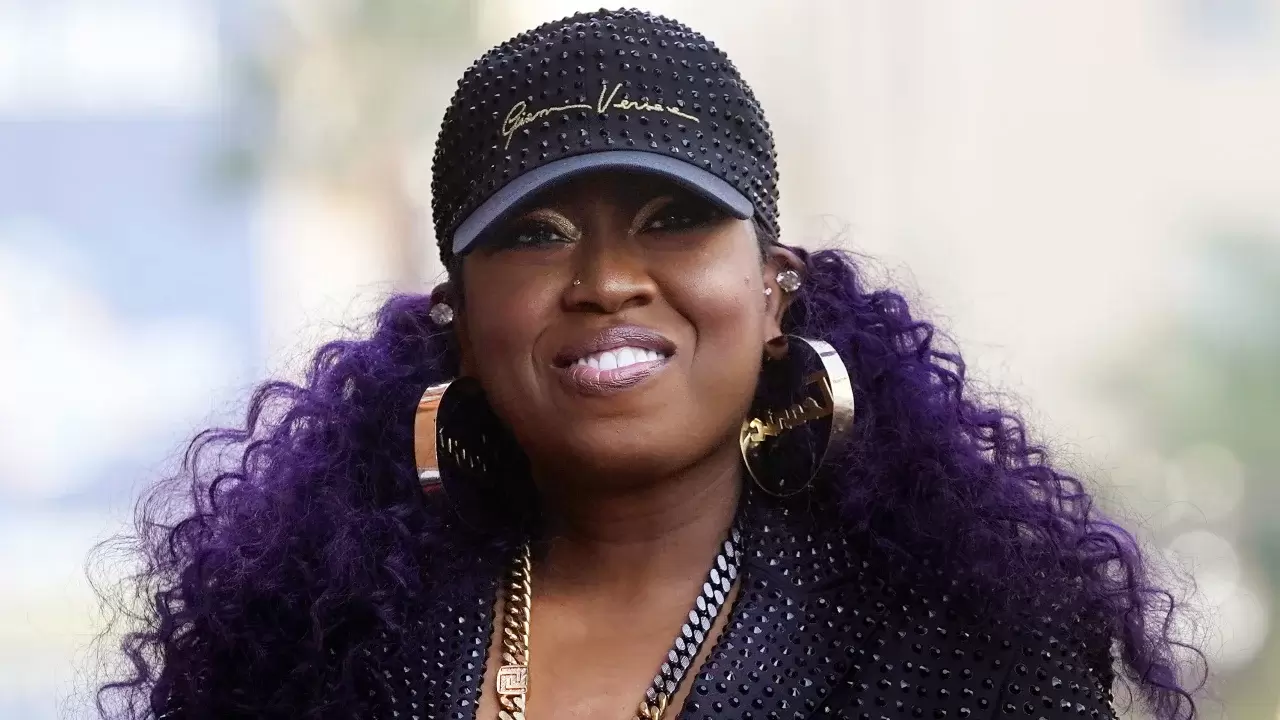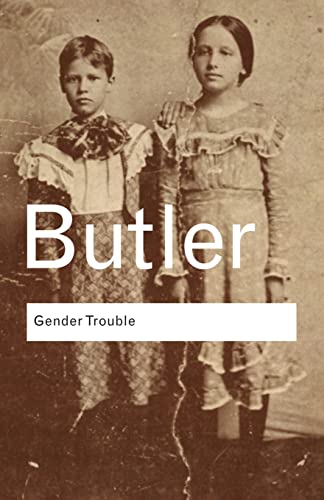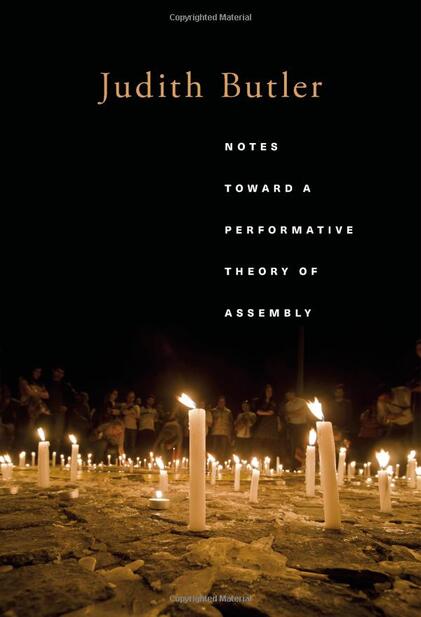- Home
- Process Worldview
- Community
- Art and Music
- Whitehead and Process Thinking
- Podcasts
- Spirituality
- Ecological Civilization
- Education
- Contact
- Social Justice
- Science
- Animals
- Sacred Poems
- Whitehead Videos
- Index of All Titles
- Practicing Process Thought
- Process Spirituality: A Spiritual Alphabet
- Recent Posts
Judith Butler
Let's Face it
“Let's face it. We're undone by each other. And if we're not, we're missing something. If this seems so clearly the case with grief, it is only because it was already the case with desire. One does not always stay intact. It may be that one wants to, or does, but it may also be that despite one's best efforts, one is undone, in the face of the other, by the touch, by the scent, by the feel, by the prospect of the touch, by the memory of the feel. And so when we speak about my sexuality or my gender, as we do (and as we must), we mean something complicated by it. Neither of these is precisely a possession, but both are to be understood as modes of being dispossessed, ways of being for another, or, indeed, by virtue of another.”
― Judith Butler, Undoing Gender
Our bodies are our agency
“These practices of instituting new modes of reality take place in part through the scene of embodiment, where the body is not understood as a static and accomplished fact, but as an aging process, a mode of becoming that, in becoming otherwise, exceeds the norm, reworks the norm, and makes us see how realities to which we thought we were confined are not written in stone.”
-- Judith Butler, video above
Gender is performative
"It's one thing to say that gender is performed and that is a little different from saying gender is performative. When we say gender is performed we usually mean that we've taken on a role or we're acting in some way and that our acting or our role playing is crucial to the gender that we are and the gender that we present to the world. To say that gender is performative is a little different because for something to be performative means that it produces a series of effects. We act and walk and speak and talk in ways that consolidate an impression of being a man or being a woman."
-- Judith Butler, video above
Injustice is 'keeping us in our gendered place'
Think about how difficult it is for sissy boys or how difficult it is for tomboys to function socially without being bullied or without being teased or without sometimes suffering threats of violence or without their parents intervening to say maybe you need a psychiatrist or why can't you be normal. So there are institutional powers like psychiatric normalization and there are informal kinds of practices like bullying which try to keep us in our gendered place.
-- Judith Butler, video above
The freedom to resist
"I think there is a real question for me about how such gender norms get established and policed and what the best way is to disrupt them and to overcome the police function. It's my view that gender is culturally formed, but it's also a domain of agency or freedom and that it is most important to resist the violence that is imposed by ideal gender norms, especially against those who are gender different, who are nonconforming in their gender presentation."
-- Judith Butler, video above
Sex and Gender
Demystifying sex and gender
Demystifying reductionist gender categories has historically been associated with Second Wave Feminism, specifically with Simone de Beauvoir’s seminal text ‘The Second Sex’(1949) in which she observed ‘one is not born, but rather one becomes, a woman.’ This made the then revolutionary distinction between sex and gender, citing the former as relating to what is anatomically distinct about the female body and the latter as the culturally constructed meaning imposed upon it. However, we should not confine this denaturalising of sex from gender to the intellectual halls of feminism. As the issues touted as indicating a ‘crisis of masculinity’ attest, reductionist gender norms are as damaging to men as they are to women. And now, thanks to the ongoing technological transformation of the labour market, we are becoming increasingly aware of how potentially damaging they might prove to the economy too.
Drawing on the legacy of Simone de Beauvoir, Judith Butler argues that gender is performative – real only insofar as we act out a gendered identity as though it were innate and then come to believe it to be so. This idea is liberating. As soon as we understand gender as socially constructed and therefore contingent, we can question and refute the expectations imposed upon us as sexed beings. We can see then that it is not a new masculinity we need, a new idea of what it is to be a man, but an open-mindedness as to the diverse capabilities and attributes of individuals as individuals. We are already seeing positive moves toward opening up traditional roles, for example through shared parental leave, which removes the sole onus of childcare from women’s shoulders. But as the frictions eluded to by the idea of a ‘crisis of masculinity’ attest, we still have a long way to go.
-- Emma-Louise Boynton, The RSA
Demystifying reductionist gender categories has historically been associated with Second Wave Feminism, specifically with Simone de Beauvoir’s seminal text ‘The Second Sex’(1949) in which she observed ‘one is not born, but rather one becomes, a woman.’ This made the then revolutionary distinction between sex and gender, citing the former as relating to what is anatomically distinct about the female body and the latter as the culturally constructed meaning imposed upon it. However, we should not confine this denaturalising of sex from gender to the intellectual halls of feminism. As the issues touted as indicating a ‘crisis of masculinity’ attest, reductionist gender norms are as damaging to men as they are to women. And now, thanks to the ongoing technological transformation of the labour market, we are becoming increasingly aware of how potentially damaging they might prove to the economy too.
Drawing on the legacy of Simone de Beauvoir, Judith Butler argues that gender is performative – real only insofar as we act out a gendered identity as though it were innate and then come to believe it to be so. This idea is liberating. As soon as we understand gender as socially constructed and therefore contingent, we can question and refute the expectations imposed upon us as sexed beings. We can see then that it is not a new masculinity we need, a new idea of what it is to be a man, but an open-mindedness as to the diverse capabilities and attributes of individuals as individuals. We are already seeing positive moves toward opening up traditional roles, for example through shared parental leave, which removes the sole onus of childcare from women’s shoulders. But as the frictions eluded to by the idea of a ‘crisis of masculinity’ attest, we still have a long way to go.
-- Emma-Louise Boynton, The RSA
One of the most talked-about scholarly works of the past fifty years, Judith Butler’s Gender Trouble is as celebrated as it is controversial.
Arguing that traditional feminism is wrong to look to a natural, 'essential' notion of the female, or indeed of sex or gender, Butler starts by questioning the category 'woman' and continues in this vein with examinations of 'the masculine' and 'the feminine'. Best known however, but also most often misinterpreted, is Butler's concept of gender as a reiterated social performance rather than the expression of a prior reality.
Thrilling and provocative, few other academic works have roused passions to the same extent.
Arguing that traditional feminism is wrong to look to a natural, 'essential' notion of the female, or indeed of sex or gender, Butler starts by questioning the category 'woman' and continues in this vein with examinations of 'the masculine' and 'the feminine'. Best known however, but also most often misinterpreted, is Butler's concept of gender as a reiterated social performance rather than the expression of a prior reality.
Thrilling and provocative, few other academic works have roused passions to the same extent.
Undoing Gender constitutes Judith Butler's recent reflections on gender and sexuality, focusing on new kinship, psychoanalysis and the incest taboo, transgender, intersex, diagnostic categories, social violence, and the tasks of social transformation. In terms that draw from feminist and queer theory, Butler considers the norms that govern--and fail to govern--gender and sexuality as they relate to the constraints on recognizable personhood. The book constitutes a reconsideration of her earlier view on gender performativity from Gender Trouble. In this work, the critique of gender norms is clearly situated within the framework of human persistence and survival. And to "do" one's gender in certain ways sometimes implies "undoing" dominant notions of personhood. She writes about the "New Gender Politics" that has emerged in recent years, a combination of movements concerned with transgender, transsexuality, intersex, and their complex relations to feminist and queer theory.
Judith Butler elucidates the dynamics of public assembly under prevailing economic and political conditions, analyzing what they signify and how. Understanding assemblies as plural forms of performative action, Butler extends her theory of performativity to argue that precarity―the destruction of the conditions of livability―has been a galvanizing force and theme in today’s highly visible protests.
Butler broadens the theory of performativity beyond speech acts to include the concerted actions of the body. Assemblies of physical bodies have an expressive dimension that cannot be reduced to speech, for the very fact of people gathering “says” something without always relying on speech. Drawing on Hannah Arendt’s view of action, yet revising her claims about the role of the body in politics, Butler asserts that embodied ways of coming together, including forms of long-distance solidarity, imply a new understanding of the public space of appearance essential to politics.
Butler links assembly with precarity by pointing out that a body suffering under conditions of precarity still persists and resists, and that mobilization brings out this dual dimension of corporeal life. Just as assemblies make visible and audible the bodies that require basic freedoms of movement and association, so do they expose coercive practices in prison, the dismantling of social democracy, and the continuing demand for establishing subjugated lives as mattering, as equally worthy of life. By enacting a form of radical solidarity in opposition to political and economic forces, a new sense of “the people” emerges, interdependent, grievable, precarious, and persistent.
Butler broadens the theory of performativity beyond speech acts to include the concerted actions of the body. Assemblies of physical bodies have an expressive dimension that cannot be reduced to speech, for the very fact of people gathering “says” something without always relying on speech. Drawing on Hannah Arendt’s view of action, yet revising her claims about the role of the body in politics, Butler asserts that embodied ways of coming together, including forms of long-distance solidarity, imply a new understanding of the public space of appearance essential to politics.
Butler links assembly with precarity by pointing out that a body suffering under conditions of precarity still persists and resists, and that mobilization brings out this dual dimension of corporeal life. Just as assemblies make visible and audible the bodies that require basic freedoms of movement and association, so do they expose coercive practices in prison, the dismantling of social democracy, and the continuing demand for establishing subjugated lives as mattering, as equally worthy of life. By enacting a form of radical solidarity in opposition to political and economic forces, a new sense of “the people” emerges, interdependent, grievable, precarious, and persistent.
The Drag Queen
Performer and Resistor
The Drag Queen as performer
In "Gender Trouble" Judith Butler introduced her famous notion of gender as performance and of the relation between identity and performativity. One cultural phenomenon that according to Judith Butler exposes the performative nature of gender is that of the drag queen. Drag for Butler raises some serious question regarding gender identity: is the man appearing in women's cloths is essentially a man in a custom with only the exterior appearance of a woman? Or is it that the overt femininity displayed by him proves that his essence is after all a feminine one, in spite of his male body? These doubts reveal for butler, in the example of the drag queen, the instability of the relationship between sex and gender, and attest to the performative nature of masculine or feminine identity. The construction of gender identities is produced through repetitive performance of behaviors, physical stylistic expressions, without which the man/woman distinction has no sense. Thus the drag queen exposes gender as a cultural code which relies on imitation and reappearance, lacking any initial, essential truth. The parody of the drag performance accentuates to the point of radicalization the norms of gender performance. Thus drag queens enable the recognition of the mimicry at the base of any structure of identity, and the absence of any authentic source. (from The Cultural Reader: Article Summaries and Reviews in Culture Studies, July 2, 2011)
In "Gender Trouble" Judith Butler introduced her famous notion of gender as performance and of the relation between identity and performativity. One cultural phenomenon that according to Judith Butler exposes the performative nature of gender is that of the drag queen. Drag for Butler raises some serious question regarding gender identity: is the man appearing in women's cloths is essentially a man in a custom with only the exterior appearance of a woman? Or is it that the overt femininity displayed by him proves that his essence is after all a feminine one, in spite of his male body? These doubts reveal for butler, in the example of the drag queen, the instability of the relationship between sex and gender, and attest to the performative nature of masculine or feminine identity. The construction of gender identities is produced through repetitive performance of behaviors, physical stylistic expressions, without which the man/woman distinction has no sense. Thus the drag queen exposes gender as a cultural code which relies on imitation and reappearance, lacking any initial, essential truth. The parody of the drag performance accentuates to the point of radicalization the norms of gender performance. Thus drag queens enable the recognition of the mimicry at the base of any structure of identity, and the absence of any authentic source. (from The Cultural Reader: Article Summaries and Reviews in Culture Studies, July 2, 2011)
The Drag Queen as Resistor
The parody of drag is for Judith Butler an important way to resist the power structures which regulate our lives and identities by ridiculing normative cultural expressions and performances. Drag performance aims at destabilizing the "truth" of sexual and gender identity by pointing to the fact that there is no obligating reason that necessitates the constants mimicry of performed identities. Drag therefore exposes the social coercion at the base of the performative nature of identity. Furthermore, the drag parody for Judith Butler points to the fact that, since there is no essential or initial basis of gender identity, that it can be disrupted, undermined, broken, turned over, resisted, altered and altogether be a subject over which to cause some "gender trouble." (from The Cultural Reader: Article Summaries and Reviews in Culture Studies, July 2, 2011)
The parody of drag is for Judith Butler an important way to resist the power structures which regulate our lives and identities by ridiculing normative cultural expressions and performances. Drag performance aims at destabilizing the "truth" of sexual and gender identity by pointing to the fact that there is no obligating reason that necessitates the constants mimicry of performed identities. Drag therefore exposes the social coercion at the base of the performative nature of identity. Furthermore, the drag parody for Judith Butler points to the fact that, since there is no essential or initial basis of gender identity, that it can be disrupted, undermined, broken, turned over, resisted, altered and altogether be a subject over which to cause some "gender trouble." (from The Cultural Reader: Article Summaries and Reviews in Culture Studies, July 2, 2011)
Butler on Whitehead

Publisher's Description of On the Occasion: Butler on Whitehead
This volume is based on the first set of formal conversations which brings together the dynamic philosophies of two eminent thinkers: Judith Butler and Alfred North Whitehead. Each has drawn from a wide palette of disciplines to develop distinctive theories of becoming, of syntactical violence, and creative opportunities of limitation. In bringing together internationally renowned interpreters of Butler and Whitehead from a variety of fields and disciplines-philosophy, rhetoric, gender and queer studies, religion, literary and political theory-the editors hope to set a standard for the relevance of interdisciplinary philosophical discourse today. This volume offers a unique contribution to and for the humanities in the struggles of politics, economy, ecology, and the arts, by reaching beyond their closed circles toward understandings that may serve as the basis for the activation of humanity today. Considered together, Butler and Whitehead delineate a whole new cadre of approaches to long-standing problems as well as never-before asked questions in the humanities.
This volume is based on the first set of formal conversations which brings together the dynamic philosophies of two eminent thinkers: Judith Butler and Alfred North Whitehead. Each has drawn from a wide palette of disciplines to develop distinctive theories of becoming, of syntactical violence, and creative opportunities of limitation. In bringing together internationally renowned interpreters of Butler and Whitehead from a variety of fields and disciplines-philosophy, rhetoric, gender and queer studies, religion, literary and political theory-the editors hope to set a standard for the relevance of interdisciplinary philosophical discourse today. This volume offers a unique contribution to and for the humanities in the struggles of politics, economy, ecology, and the arts, by reaching beyond their closed circles toward understandings that may serve as the basis for the activation of humanity today. Considered together, Butler and Whitehead delineate a whole new cadre of approaches to long-standing problems as well as never-before asked questions in the humanities.
Becoming Otherwise:
Constructive Freakiness
Constructive freakiness is the activity of enjoying life and promoting social justice by dressing, speaking, thinking, and acting in ways that do not conform to socially constructed norms, gender and otherwise. In the words of Judith Butler, it "exceeds and reworks" the norms. The aim of constructive freakiness is to suggest a different, more creative and compassionate way of living in the world. Martin Luther King, Jr. called it beloved community.
Some of the ways we perform our genders are given to us by society. We do not think about what it means to "be a man" or "be a woman," we acquire our understanding by imitating others. But sometimes we feel different because the norms do not conform to our own true feelings. We begin to construct our gender in a more conscious way and, if we are inclined, enter constructive freakiness. It is an act of agency or, in Whitehead’s words, an act of decision: that is, an act of cutting off certain possibilities for self-presentation and embodying others. As Judith Butler puts it, it is an act of becoming otherwise.
Becoming otherwise is both extraordinary and ordinary. It is extraordinary in its novelty but ordinary in its pervasiveness. In truth, every moment of experience is an act of becoming otherwise than one has been in the past, because every moment is unique. This is true of human life, other animal life, plant life, and divine life. At any given moment, consciously or unconsciously we and other living beings are are “freaky” compared to what has been. Just in surviving for another moment, we are becoming otherwise. Constructive freakiness is a distinctively human way of becoming otherwise, aimed at making space for people to be freaky.
Deep down the whole universe is freaky. It is a creative advance into novelty, always becoming otherwise. Constructive freakiness is one way, and not the only, of creatively participating in this advance.
There is a spiritual or inner side to constructive freakiness, too. It is a spiritual state that is inwardly receptive to the outrageous, different, and weird for the sake of individual joy, social justice, and the common good of the world. Its spirit is playful and exploratory and, at the same time, intentionally defiant of confining conventional norms. It explodes convention for the sake of the true and beautiful, the multiple and the good.
It opens space in society for new ideas to emerge which are constructively freaky, at least as compared to mechanistic ways of thinking. For example, whereas a mechanistic worldview imagines the world on the analogy of a clock with manufactured parts that operate in predetermined ways, constructively freaky worldviews imagine the world as a living organism, replete with creativity and diversity, in which differences are understood as part of life's beauty. The organic philosophy of Alfred North Whitehead is constructively freaky in this sense.
Even the Soul of the universe, even God, is otherwise and thus constructively freaky. As every moment of subjectivity occurs, as every concrescing subject becomes itself, God is affected, feeling the feelings of the subject in a sympathetic way. God becomes the subject itself and then adapts to the new situation by creating a new divine identity. Again and again God is performing gender, refusing to be fixed into a single identity, for love's sake. In this sense, God, too, is a drag queen. The queen beckons each of us from within our own hearts to free ourselves from fixed forms, for love's sake. The queen says, with Missy Elliot, Get Ur Freak On.
-- Jay McDaniel
Some of the ways we perform our genders are given to us by society. We do not think about what it means to "be a man" or "be a woman," we acquire our understanding by imitating others. But sometimes we feel different because the norms do not conform to our own true feelings. We begin to construct our gender in a more conscious way and, if we are inclined, enter constructive freakiness. It is an act of agency or, in Whitehead’s words, an act of decision: that is, an act of cutting off certain possibilities for self-presentation and embodying others. As Judith Butler puts it, it is an act of becoming otherwise.
Becoming otherwise is both extraordinary and ordinary. It is extraordinary in its novelty but ordinary in its pervasiveness. In truth, every moment of experience is an act of becoming otherwise than one has been in the past, because every moment is unique. This is true of human life, other animal life, plant life, and divine life. At any given moment, consciously or unconsciously we and other living beings are are “freaky” compared to what has been. Just in surviving for another moment, we are becoming otherwise. Constructive freakiness is a distinctively human way of becoming otherwise, aimed at making space for people to be freaky.
Deep down the whole universe is freaky. It is a creative advance into novelty, always becoming otherwise. Constructive freakiness is one way, and not the only, of creatively participating in this advance.
There is a spiritual or inner side to constructive freakiness, too. It is a spiritual state that is inwardly receptive to the outrageous, different, and weird for the sake of individual joy, social justice, and the common good of the world. Its spirit is playful and exploratory and, at the same time, intentionally defiant of confining conventional norms. It explodes convention for the sake of the true and beautiful, the multiple and the good.
It opens space in society for new ideas to emerge which are constructively freaky, at least as compared to mechanistic ways of thinking. For example, whereas a mechanistic worldview imagines the world on the analogy of a clock with manufactured parts that operate in predetermined ways, constructively freaky worldviews imagine the world as a living organism, replete with creativity and diversity, in which differences are understood as part of life's beauty. The organic philosophy of Alfred North Whitehead is constructively freaky in this sense.
Even the Soul of the universe, even God, is otherwise and thus constructively freaky. As every moment of subjectivity occurs, as every concrescing subject becomes itself, God is affected, feeling the feelings of the subject in a sympathetic way. God becomes the subject itself and then adapts to the new situation by creating a new divine identity. Again and again God is performing gender, refusing to be fixed into a single identity, for love's sake. In this sense, God, too, is a drag queen. The queen beckons each of us from within our own hearts to free ourselves from fixed forms, for love's sake. The queen says, with Missy Elliot, Get Ur Freak On.
-- Jay McDaniel




